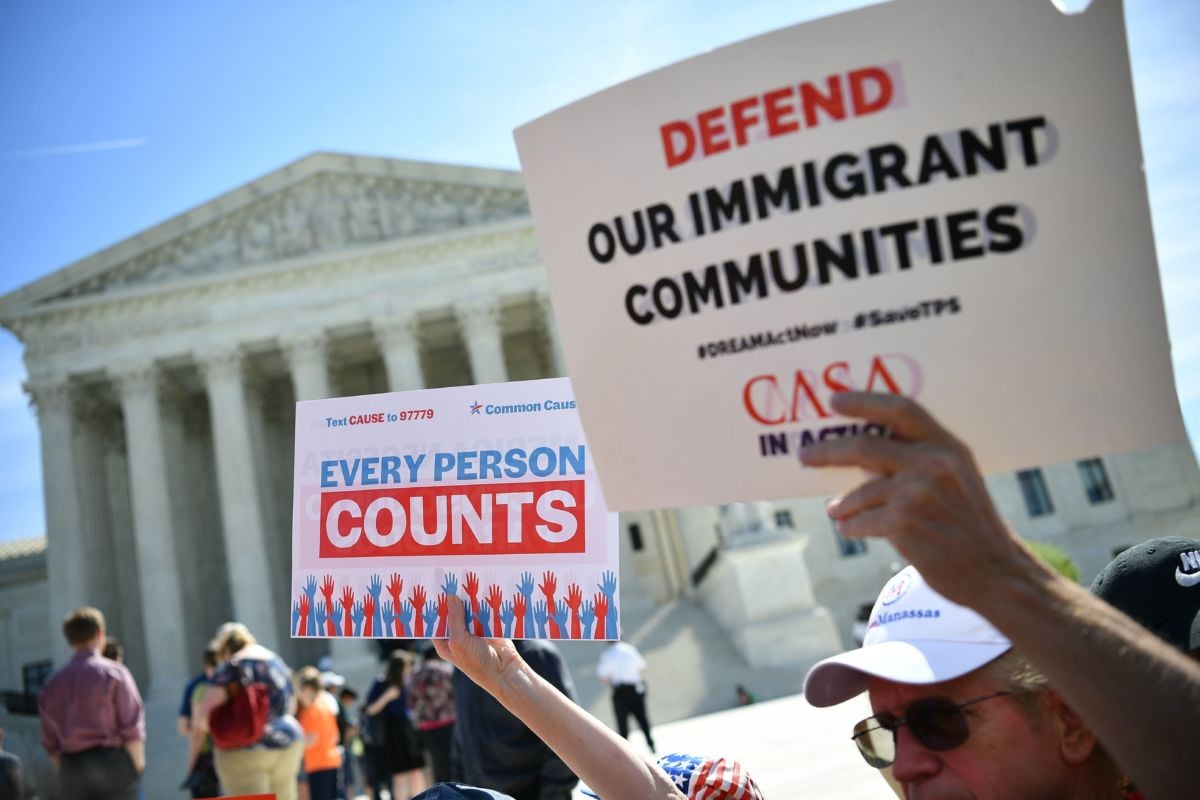Months after the Supreme Court blocked the Trump administration’s attempt to add a citizenship question to the 2020 census, the administration is trying a different way to collect data on the citizenship status of everyone living in the United States. The administration’s renewed effort, announced via executive order in July, has raised concerns about how the administration is allowed to use the information it collects.
The order specifically directs the Census Bureau to collect administrative records on citizenship from other federal agencies, such as the Department of Homeland Security. The order has met with immediate pushback. Several groups are suing to block the bureau from gathering these records, arguing that doing so would violate the Constitution and federal law. And experts have questioned whether the plan put forth in that order is feasible. But there’s one thing to know regardless of how these disputes are resolved: any data the bureau collects pursuant to the order will be protected by the same ironclad laws that protect the confidentiality of census data.
As we’ve previously explained in a detailed report, Federal Laws That Protect Census Confidentiality, those laws are robust and clear-cut. For example, Title 13 of the U.S. Code — otherwise known as the Census Act — contains the following prohibitions:
- It is illegal for the Census Bureau to disclose any personally identifiable information.
- It is illegal for census data to be used for any nonstatistical purpose. Thus, the government cannot use census data for things like immigration enforcement or criminal prosecution.
- It is illegal for anyone except for Census Bureau employees to see census responses. Bureau employees are sworn to secrecy under the threat of criminal prosecution, and they can be sent to prison for up to five years and fined up to $250,000 if they break their oath.
- It is illegal for the Census Bureau to give census responses to other government agencies. In other words, agencies like Immigration and Customs Enforcement have no legal way to access census responses.
- It is illegal for the federal government to use census responses to harm anyone.
All these prohibitions apply equally to any information the bureau gathers using administrative records from other agencies. If, for example, a household does not respond to the decennial census, the bureau may try to use records from the Department of Housing and Urban Development (HUD) to figure out the demographics of the people living in that household. Once the bureau gets that information from the HUD, it is subject to the same confidentiality protections as any other data the bureau collects. The same holds for any information that the Trump administration may gather through its executive order.
The bureau, in essence, operates as a sort of vacuum: it can take in most any information it wants, but it cannot release that information unless it complies with all the applicable confidentiality restrictions. (Deputy Census Bureau Director Ron Jarmin reportedly described the bureau as a “data roach motel” for this reason: “Data come in identifiable form, and don’t come out in identifiable form.”) Bureau policy endorses this view, and specifically notes that Title 13 protects administrative records the bureau receives from other agencies. The bureau’s chief scientist, moreover, confirmed this strict confidentiality policy in a recent presentation on collecting administrative records on citizenship.
Title 13 is just one of the many laws that protect the confidentiality of census data. Other federal laws, including the Confidential Information Protection and Statistical Efficiency Act, the Privacy Act, and the tax code, provide additional safeguards. (A comprehensive guide to the laws that protect the confidentiality of Census Bureau data is available here.)
The strength of the confidentiality protections in these and other federal laws reflects an acknowledgement by Congress that confidentiality is essential to getting people to respond to the census. The census determines the distribution of political power across the nation, as well as the amount of funding that communities get for necessities like food, schools, and roads. With the stakes so high, it should come as no surprise that the confidentiality laws are highly protective.
Media that fights fascism
Truthout is funded almost entirely by readers — that’s why we can speak truth to power and cut against the mainstream narrative. But independent journalists at Truthout face mounting political repression under Trump.
We rely on your support to survive McCarthyist censorship. Please make a tax-deductible one-time or monthly donation.
